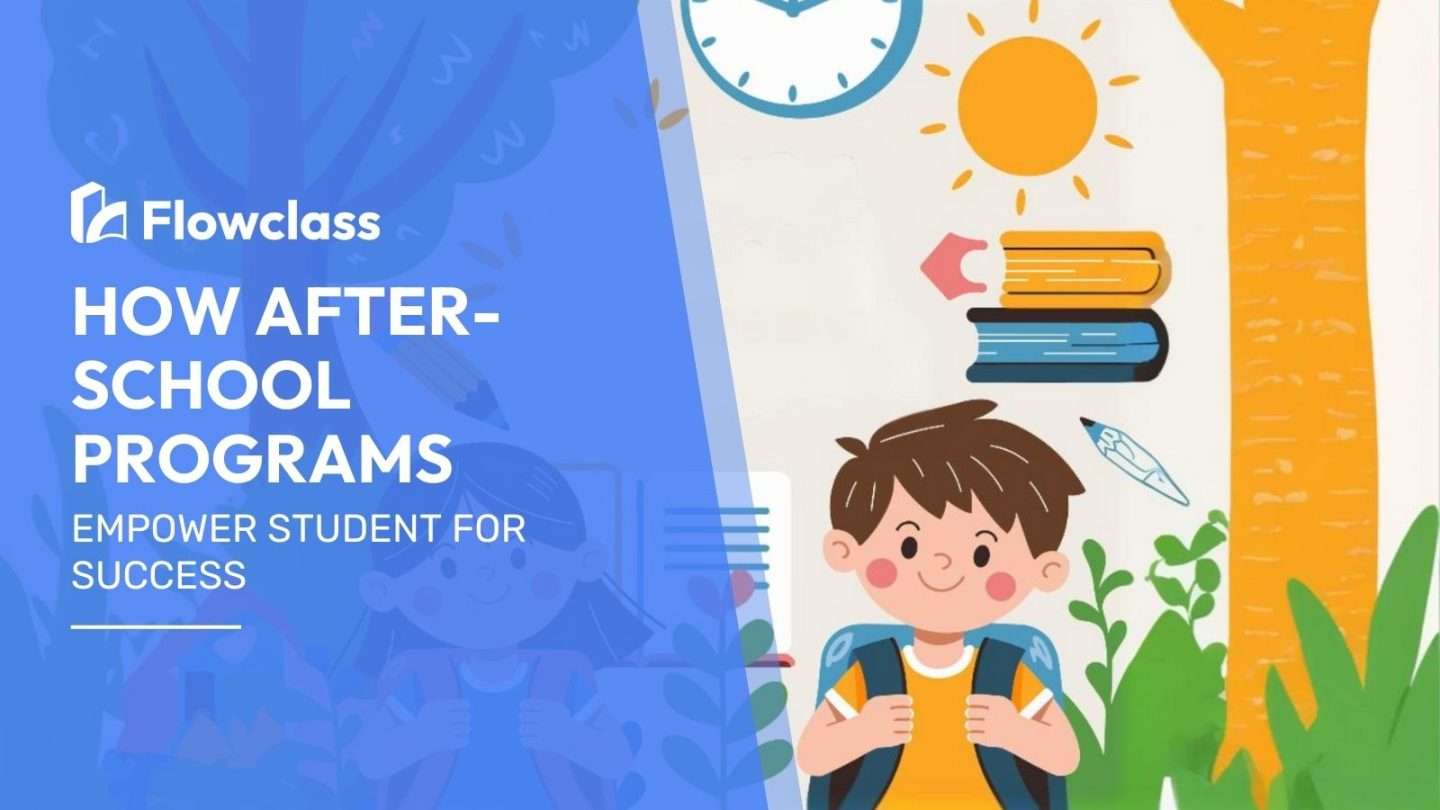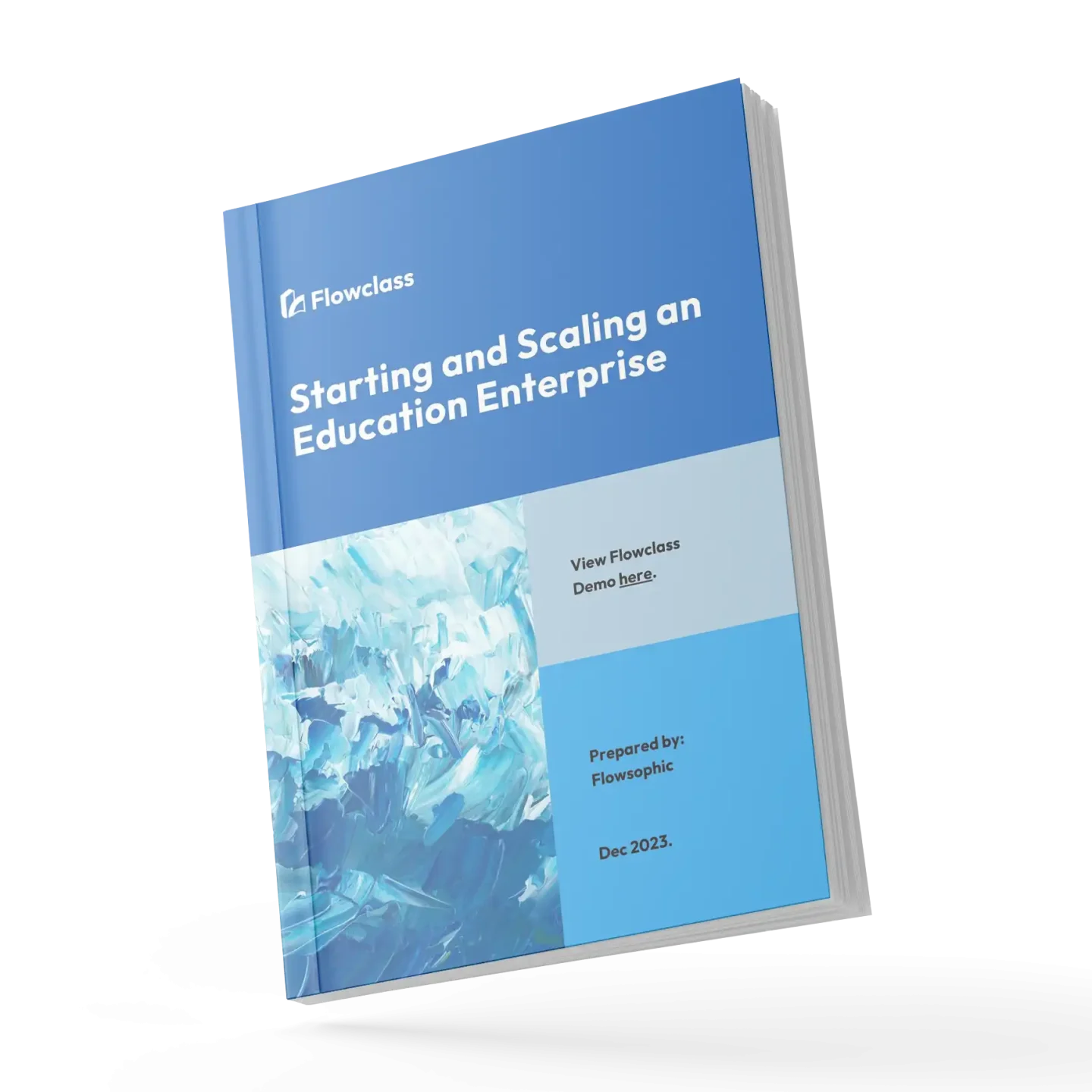In today’s educational landscape, after-school programs have become indispensable in fostering both academic achievement and personal development. They provide students with unique opportunities to continue learning and growing long after the school bell rings. These programs are designed not only to offer academic assistance but also to promote social, emotional, and physical well-being. As such, they are critical in empowering students to reach their full potential.
In this blog, we will explore the types of after-school programs, their benefits, why they are essential for student success, and how they positively impact communities. Additionally, we will delve into challenges faced by after-school programs and how they continue to evolve to meet the needs of diverse learners.
The Importance of After-School Programs

The importance of after-school programs cannot be overstated. These programs provide structured environments where students can engage in enriching activities that extend beyond the traditional classroom. These environments support learning while keeping students safe during critical after-school hours, which helps reduce the likelihood of risky behaviors.
For many working parents, after-school programs offer a vital solution to childcare needs, ensuring that their children remain engaged in positive activities rather than being left unsupervised. According to the Afterschool Alliance, students who participate in after-school programs are less likely to engage in risky behaviors, such as drug use or juvenile crime [1]. This preventive aspect alone highlights the importance of these programs in fostering a safe and supportive environment for children.
Moreover, after-school programs often focus on the holistic development of the child. They aim to nurture the emotional, social, and physical well-being of students, along with their intellectual growth. These programs help students build life skills, self-confidence, and resilience, all of which contribute to long-term success.
Bridging the Achievement Gap

One of the key roles of after-school programs is to bridge the achievement gap between students from different socioeconomic backgrounds. Data from the Afterschool Alliance reveals that students from low-income families who participate in high-quality after-school programs are more likely to improve academically and socially than their peers who do not participate [2].
These programs provide opportunities for students who may not have access to the same resources at home, such as books, technology, or academic support. By leveling the playing field, after-school programs help to mitigate the disparities that exist between students from different backgrounds, promoting equity in education.
Academic Benefits of After-School Programs

One of the primary goals of after-school programs is to support academic achievement. Many programs offer homework assistance, tutoring, and academic enrichment activities that align with the school curriculum. By providing students with additional time and resources to focus on their studies, after-school programs play a critical role in enhancing academic performance.
Homework Assistance and Tutoring

Homework assistance is a staple of many after-school programs. Students receive help with their assignments from tutors, teachers, or trained staff members. This one-on-one attention allows students to ask questions, clarify misunderstandings, and receive guidance on challenging subjects. As a result, students are more likely to complete their homework on time and with greater accuracy.
Additionally, after-school programs often offer tutoring services in specific subjects, such as math, reading, or science. These tutoring sessions provide targeted support for students who may be struggling in particular areas, helping them to build a stronger foundation in core subjects. According to research from the National Institute on Out-of-School Time, students who participate in after-school programs show improved academic performance and higher test scores [3].
Enrichment Activities
Aside from academic support, after-school programs also offer a wide range of enrichment activities that promote learning. These activities may include science experiments, arts and crafts, creative writing workshops, and even coding classes. By engaging students in hands-on activities, after-school programs encourage critical thinking, problem-solving, and creativity.
For instance, a student may participate in a science club that conducts experiments to investigate chemical reactions. Through such activities, students learn how to apply scientific concepts in real-world situations, making learning more relevant and engaging. This experiential approach to learning helps to solidify students’ understanding of complex topics, leading to better academic outcomes.
Access to Resources
Another critical aspect of after-school programs is that they provide access to resources that students may not have at home. Many programs offer access to computers, books, educational software, and other materials that are essential for academic success. For students from low-income families, these resources can make a significant difference in their ability to complete assignments and excel in their studies.
Moreover, after-school programs often have partnerships with local libraries, universities, or community organizations that provide additional resources, such as guest speakers, field trips, and educational workshops. These partnerships further enrich the learning experience and expose students to new ideas and opportunities.
After-School Programs Foster Social and Emotional Development
In addition to supporting academic achievement, after-school programs play a crucial role in fostering social and emotional development. These programs create opportunities for students to engage with their peers in a relaxed and supportive environment, allowing them to build meaningful relationships and develop important social skills.
Building Social Skills

Through group activities, team projects, and cooperative games, students in after-school programs learn how to work collaboratively with others. They practice communication, compromise, and conflict resolution—skills that are essential for success in school and beyond. These social interactions help students develop empathy and respect for others, fostering a sense of community and belonging.
For instance, a group of students might work together to plan a community service project, such as organizing a food drive or cleaning up a local park. By working as a team, students learn how to delegate tasks, solve problems, and achieve common goals. These experiences not only strengthen their social skills but also build a sense of responsibility and civic engagement.
Emotional Well-Being

In addition to social skills, after-school programs also support students’ emotional well-being. These programs provide a safe space where students can express their emotions, seek guidance, and receive emotional support from caring adults. Whether through individual counseling sessions or group discussions, after-school programs help students navigate the challenges of adolescence and build resilience.
Moreover, many after-school programs incorporate mindfulness practices, such as yoga or meditation, to help students manage stress and anxiety. These activities teach students how to regulate their emotions and develop coping strategies for dealing with difficult situations. As a result, students are better equipped to handle the pressures of school and life.
A study by the American Institutes for Research found that students involved in after-school programs exhibited better behavior, improved social skills, and increased emotional resilience [4]. These positive social and emotional outcomes contribute to a healthier learning environment and help students develop into well-rounded individuals.
After-School Programs and Physical Health
Physical activity is another key component of many after-school programs. These programs often include sports, fitness activities, and recreational games that encourage students to stay active and healthy. In an age where screen time is on the rise, after-school programs provide a valuable outlet for physical exercise.
Promoting Physical Fitness

By participating in physical activities, students develop motor skills, coordination, and overall fitness. Whether through organized sports, dance classes, or outdoor games, after-school programs help students build strength, endurance, and flexibility. These physical activities also teach important life lessons, such as teamwork, perseverance, and discipline.
For example, a student who participates in a basketball program learns how to work with teammates, follow rules, and practice regularly to improve their skills. These experiences not only contribute to physical health but also build character and resilience.
The Centers for Disease Control and Prevention (CDC) highlights that physical activity in after-school programs can help reduce childhood obesity, improve mental health, and enhance cognitive function [5]. By incorporating physical fitness into after-school programs, students can develop healthy habits that last a lifetime.
Mental Health and Well-Being

In addition to physical health, after-school programs also promote mental well-being. Regular physical activity has been shown to reduce symptoms of anxiety and depression, improve mood, and boost self-esteem. By providing opportunities for students to engage in physical exercise, after-school programs contribute to their overall mental health.
Moreover, the structured and supportive environment of after-school programs helps students develop a sense of stability and routine. This sense of security is particularly important for students who may face challenges at home or in school. After-school programs provide a safe space where students can relax, unwind, and focus on their personal growth.
How After-School Programs Build Confidence
One of the most significant ways after-school programs empower students is by building their confidence. When students participate in activities where they feel successful, their self-esteem grows. Whether they excel in academics, sports, or the arts, after-school programs give students the chance to shine.
Opportunities for Success

After-school programs provide students with opportunities to succeed in areas they may not have previously explored. Whether it’s learning a new skill, completing a challenging project, or performing in front of an audience, these experiences help students build confidence in their abilities.
For example, a student who participates in a theater program may discover a talent for acting that they never knew they had. By stepping out of their comfort zone and performing on stage, they develop a sense of accomplishment and pride in their abilities. This newfound confidence often carries over into other areas of their life, including academics and social interactions.
Encouraging Risk-Taking
After-school programs also encourage students to take risks and try new things without the fear of failure. In a supportive environment, students are more willing to challenge themselves and push their boundaries. Whether it’s attempting a difficult math problem, trying out for a sports team, or performing in a talent show, after-school programs give students the freedom to explore their interests and abilities.
According to the Afterschool Alliance, students who participate in after-school programs are more likely to develop leadership skills [6]. These programs encourage students to take initiative, set goals, and work towards achieving them. This boost in confidence helps students succeed both in and out of the classroom.
The Role of Mentorship in After-School Programs
Mentorship is a key element of many after-school programs. By providing students with positive role models, these programs help guide students through both academic and personal challenges. Mentors offer advice, encouragement, and support, helping students navigate difficult situations.
Building Trusting Relationships
Mentors in after-school programs serve as trusted adults who can provide guidance and support. These relationships are built on trust and mutual respect, allowing students to feel comfortable seeking help when needed. Whether it’s advice on a school project, help with a personal issue, or encouragement to pursue a goal, mentors play a crucial role in helping students succeed.
Moreover, mentors help students develop important life skills, such as goal-setting, time management, and decision-making. By working closely with students, mentors can provide personalized support that helps students overcome obstacles and achieve their goals.
Long-Term Impact of Mentorship
The impact of mentorship in after-school programs extends far beyond the program itself. Research from the National Mentoring Partnership shows that students with mentors are more likely to graduate from high school, attend college, and pursue meaningful careers [7]. Mentorship provides students with the tools they need to succeed in both school and life.
Additionally, students who have mentors are more likely to develop a positive self-image and a sense of purpose. They are more confident in their abilities and more motivated to pursue their goals. This long-term impact highlights the importance of mentorship in after-school programs.
After-School Programs for Special Needs Students
After-school programs also cater to students with special needs. These programs provide personalized support and accommodations to ensure that all students can participate fully. By offering tailored activities and resources, learning centers create inclusive environments where every student can thrive.
Tailored Support for Special Needs Students
Many after-school programs are specifically designed to meet the needs of students with disabilities or special learning requirements. These programs offer individualized support, such as one-on-one tutoring, speech therapy, or physical therapy, to help students develop the skills they need to succeed.
For instance, a student with a learning disability may receive extra help with reading or math. These personalized interventions ensure that each student receives the attention and support they need to overcome challenges and reach their full potential.
Inclusive Learning Environments
In addition to providing individualized support, after-school programs for special needs students foster inclusive learning environments. By offering activities that are accessible to all students, these programs promote a sense of belonging and inclusion. Students with special needs are able to participate in social, academic, and recreational activities alongside their peers, helping them develop important social skills and build relationships.
According to the National Afterschool Association, after-school programs for students with special needs promote socialization, independence, and self-confidence [8]. These programs ensure that every student, regardless of ability, has the opportunity to grow and succeed.
The Impact of After-School Programs on At-Risk Youth
After-school programs are particularly beneficial for at-risk youth. These programs provide a safe space where students can stay out of trouble and avoid risky behaviors. By offering structured activities, after-school programs keep students engaged during critical hours when they might otherwise be unsupervised.
Providing Structure and Support
For many at-risk youth, after-school programs provide the structure and support they need to succeed. These programs offer a wide range of activities, including academic support, mentoring, and recreational opportunities. By keeping students engaged in positive activities, after-school programs help reduce the likelihood of involvement in risky behaviors, such as drug use, gang activity, or juvenile crime.
Moreover, after-school programs provide valuable resources, such as tutoring, counseling, and mentorship, that help at-risk youth overcome challenges and build a brighter future. These programs often serve as a lifeline for students who may not have access to the same resources at home or in their schools.
Breaking the Cycle
After-school programs play a crucial role in breaking the cycle of poverty and providing students with opportunities for success. By offering academic support, life skills training, and emotional support, these programs help at-risk youth overcome the challenges they face and achieve their goals.
A report by The Wallace Foundation highlights that after-school programs reduce juvenile delinquency and improve academic outcomes for at-risk students [9]. These programs play a critical role in providing students with the tools they need to succeed in both school and life.
Parental Involvement in After-School Programs
Parental involvement is a key factor in the success of after-school programs. When parents are engaged in their child’s education, students are more likely to succeed. After-school programs often provide opportunities for parents to participate in activities, attend workshops, and communicate with educators.
Building Strong Parent-Teacher Partnerships
By fostering strong parent-teacher relationships, after-school programs create a supportive network for students. This collaboration ensures that students receive the guidance and encouragement they need both at home and in the learning center.
For example, parents may attend workshops that provide strategies for helping their child with homework, reading, or social skills. These workshops not only empower parents to support their child’s learning but also strengthen the parent-teacher partnership.
Engaging Parents in the Learning Process
In addition to workshops, after-school programs often host family events, such as open houses or community service projects, that encourage parents to become more involved in their child’s education. These events provide opportunities for parents to engage with their child’s learning and build stronger connections with educators.
According to a study by Harvard Family Research Project, parental involvement in after-school programs improves academic performance, behavior, and social skills [10]. Parents who are actively involved in their child’s after-school activities contribute to a positive learning experience and help reinforce the lessons learned in the program.
Overcoming Challenges in After-School Programs
Despite their many benefits, after-school programs face several challenges. One of the primary obstacles is funding. Many programs rely on grants, donations, and government support to operate. Without adequate funding, it can be difficult to provide the necessary resources, staff, and materials.
Funding and Resources
The sustainability of after-school programs often depends on securing consistent funding. Many programs struggle to maintain operations due to limited financial resources. This lack of funding can result in reduced staff, fewer program offerings, and limited access to materials and equipment.
To overcome these challenges, after-school programs must seek out diverse funding sources, such as grants, corporate sponsorships, and community partnerships. By building strong relationships with local businesses, foundations, and government agencies, learning centers can secure the resources they need to continue providing high-quality services to students.
Recruiting and Retaining Qualified Staff
Another challenge faced by after-school programs is the recruitment and retention of qualified staff. After-school programs require dedicated educators, mentors, and volunteers who are passionate about helping students succeed. However, attracting and retaining skilled staff can be difficult, particularly for programs with limited budgets.
To address this issue, after-school programs must invest in professional development and create supportive work environments. By offering competitive salaries, ongoing training, and opportunities for career advancement, learning centers can attract and retain talented staff members who are committed to making a difference in the lives of students.
Transportation and Accessibility
Transportation is another barrier for many families. Some students may not have access to reliable transportation to and from after-school programs. This can be particularly challenging for families in rural or underserved areas, where public transportation may be limited or unavailable.
Learning centers must find ways to address this issue, whether through partnerships with local transportation services or by offering on-site programs at schools. By ensuring that all students have access to after-school programs, learning centers can help close the gap between students who have transportation options and those who do not.
The Future of After-School Programs
Looking ahead, after-school programs will continue to evolve to meet the changing needs of students and families. With advancements in technology, many programs are incorporating digital tools to enhance learning. Virtual programs and online tutoring are becoming more prevalent, allowing students to access resources from anywhere.
Incorporating Technology for Enhanced Learning
The role of technology in after-school programs is expected to grow in the coming years. By incorporating digital tools, such as educational apps, online courses, and virtual tutoring, after-school programs can offer personalized learning experiences that cater to the unique needs of each student.
For example, a student who struggles with math may benefit from using a math app that provides interactive lessons and real-time feedback. By incorporating technology into after-school programs, learning centers can offer students new ways to engage with the material and reinforce their skills.
Focusing on Social-Emotional Learning
Moreover, the focus on social-emotional learning (SEL) is expected to grow in the future. By helping students develop emotional intelligence, after-school programs can better prepare them for the challenges of the future. SEL programs teach students how to manage their emotions, build strong relationships, and make responsible decisions.
As more educators recognize the importance of SEL in student development, after-school programs will continue to play a critical role in fostering emotional well-being. By incorporating SEL strategies into their curriculum, learning centers can help students develop the skills they need to succeed both academically and personally.
Promoting Inclusivity and Diversity
Additionally, after-school programs will continue to prioritize inclusivity and diversity. By offering tailored programs for diverse learners, including students with special needs and English Language Learners, learning centers can ensure that every student has the opportunity to succeed.
Future after-school programs will focus on creating inclusive environments where all students feel valued and respected. By offering activities and resources that cater to the unique needs of each student, learning centers will continue to promote equity in education.
Conclusion: Empowering Students Through After-School Programs
In conclusion, after-school programs play a vital role in empowering students. By offering academic support, social-emotional learning, and extracurricular activities, these programs help students reach their full potential.
Moreover, after-school programs provide a safe, structured environment where students can thrive. Whether through mentorship, academic assistance, or creative outlets, these programs equip students with the tools they need to succeed in life.
As we look to the future, after-school programs will continue to be a cornerstone of student development. By embracing innovation and inclusivity, learning centers can create environments where all students feel supported and empowered. The impact of after-school programs is undeniable, and their role in shaping the next generation is more important than ever.
References
- Afterschool Alliance – Research on the benefits of after school programs
- Afterschool Alliance – Bridging the Achievement Gap
- National Institute on Out-of-School Time – After School Programs and Academic Performance
- American Institutes for Research – Social and Behavioral Benefits of After School Programs
- CDC – Physical Benefits of After School Programs
- Afterschool Alliance – Leadership and Development in After School Programs
- National Mentoring Partnership – The Impact of Mentorship
- National Afterschool Association – Programs for Special Needs Students
- The Wallace Foundation – After School Programs and At-Risk Youth
- Harvard Family Research Project – Parental Involvement in After School Programs


